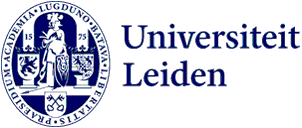
Radio Palestine/Israel Challenging Preconceptions: ‘A courageous step in a polarised debate’
The Israel-Palestine conflict regularly sparked intense debates in university lecturer Noa Schonmann's classes. She decided to start a podcast with journalist Rajaa Natour to teach her students to have deep and difficult conversations in a nuanced way.
In the aftermath of 7 October 2023, students seemed overwhelmed by the stream of horrific news coming through, Schonmann says at the launch of the ‘Radio Palestine/Israel’ podcast. ‘They were either shouting at one another or shutting down, afraid of saying the wrong thing.’
With her friend Natour, she devised a plan to break this deadlock: a lecture series for all interested humanities students, in which Israeli historian Schonmann would introduce students to the conflict’s history from different perspectives, while Palestinian journalist Natour would guide them through the production of recorded interviews. ‘We were keen to create a space where talking about Israel-Palestine is normal, but where people also learn how to listen and think differently,’ Schonmann says. ‘We wanted them not just to communicate with other people, trying to get them to change their minds, but also to understand how you come to open yourself to other opinions and maybe change your own views.’
Live recording at the Lipsius
The result is the Radio Palestine/Israel podcast, which was launched on Thursday 6 February with a live recording in the Lipsius building. International Relations student, Toon van Parys, joined Natour as one of two interviewers to talk about her experiences working currently as a Palestinian journalist in the Netherlands. ‘Throughout my studies, I’ve always been interested in the Israel-Palestine conflict,’ he said afterwards. 'What particularly appealed to me in these lectures was that as a student you were in the midst of it. You didn’t just listen, but were given tools to discover what stories are out there, what’s going on and what you think about them.'
One of these tools was a set of basic ground rules. ‘For example, it’s important to see someone's ideas as separate from the person,’ Toon explains. ‘Just because we disagree heartily with each other on a topic in class doesn't mean we can't have a good conversation afterwards.’ Partly by respecting that rule, I have discovered that I find it perhaps most interesting to listen to the narratives with which I disagree.'
Courageous step in a polarised debate
Toon and his fellow students have done exactly what Leiden University stands for, said Rector Hester Bijl. 'You have taken a courageous step in a polarised debate by going beyond often rigid prejudices. In doing that, you embody what universities should stand for: critical enquiry, empathy and the pursuit of understanding. This podcast is an example of what academic engagement can achieve,' she said after the recording.
